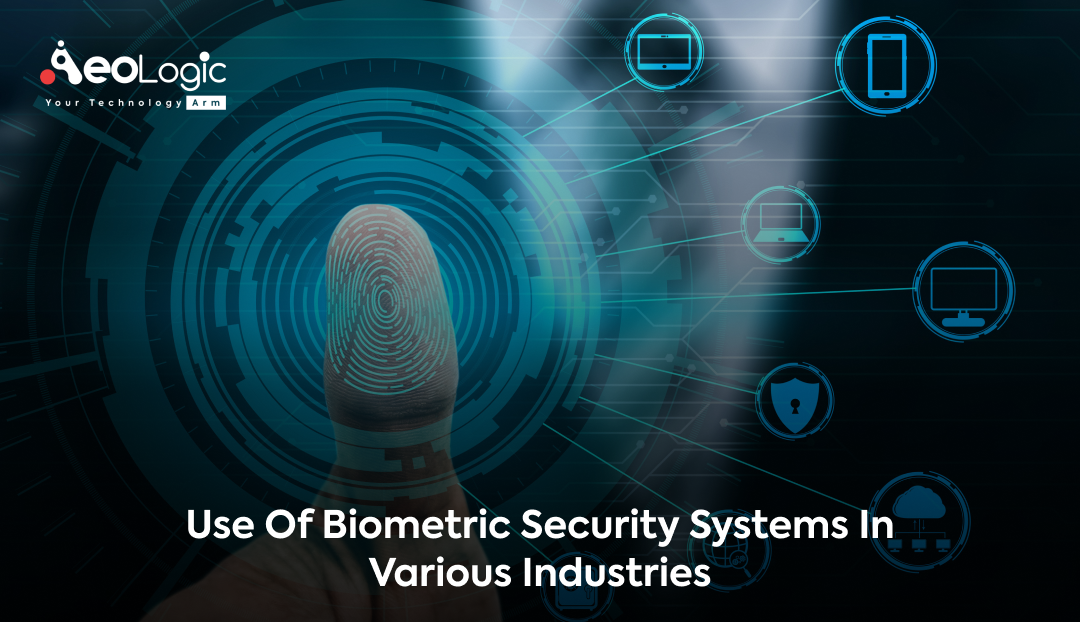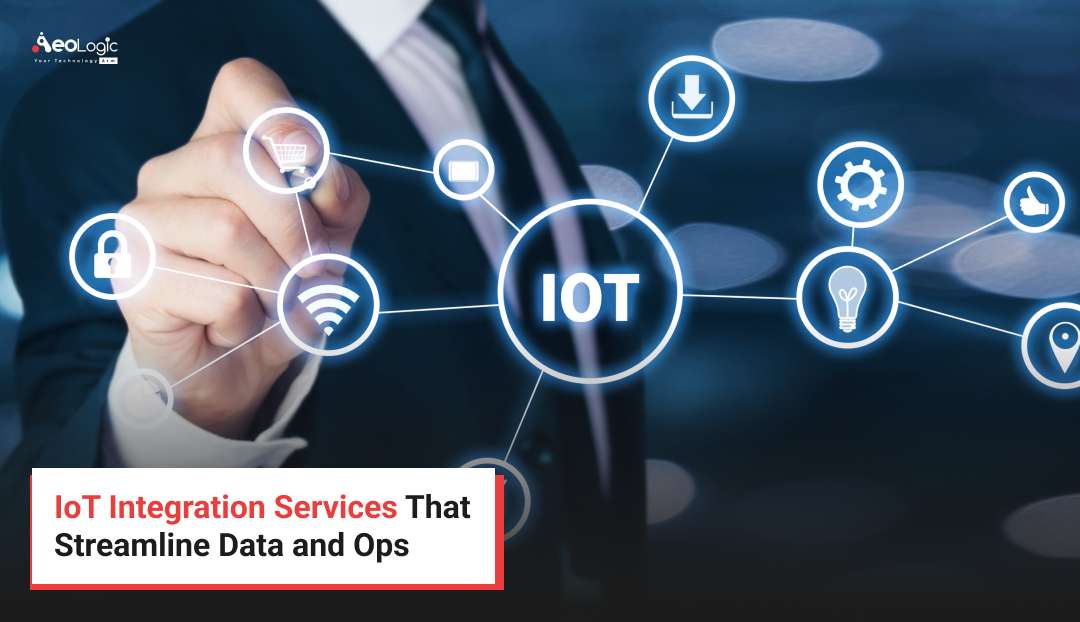In today’s fast-paced world, security is a prime concern for every business and industry. It’s not just about safeguarding information but also about validating identities in a reliable manner. This is where the marvel of Biometric Security Systems comes into play. I invite you to dive into the realm of Biometric Security Systems in Various Industries, exploring how they are reshaping the security landscape and driving operational excellence.
Statistics of Biometric Security Systems

The ever-increasing adoption of Biometric Security Systems in Various Industries is not without solid backing from data. The statistics reflecting the growth and acceptance of these security systems are nothing short of impressive.
According to Mordor Intelligence, the Biometrics Market size is anticipated to burgeon from USD 42.96 billion in 2023 to a whopping USD 94.23 billion by 2028, marking a Compound Annual Growth Rate (CAGR) of 17.01% during the forecast period (2023-2028).
Grand View Research suggests a similar growth trajectory, with the global biometric technology market size, valued at USD 34.27 billion in 2022, expected to expand at a CAGR of 20.4% from 2023 to 2030. The demand is primarily fueled by the growing adoption of biometric systems in consumer electronics and automotive industries.
A report from GlobeNewswire reaffirms the growth, indicating the global biometric system market size was valued at USD 29.09 billion in 2021 and slightly increased to USD 30.77 billion in 2022.
Another statistic from GlobeNewswire propels the argument further by projecting the global biometric technology market to soar from $47.6 billion in 2022 to an astonishing $184.8 billion in 2030, at a substantial CAGR of 18.5%.
What is Biometrics?
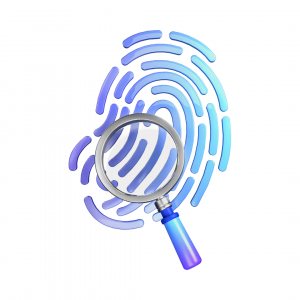
Biometrics refers to the technology that powers the recognition and verification of individuals based on their unique physical or behavioral characteristics. It’s like having a personal identification card that you can never lose, forget, or have stolen. The term “Biometrics” is derived from the Greek words ‘bio’ meaning life and ‘metric’ meaning measurement. This essentially sums up the essence of biometric technology – measuring life’s unique characteristics.
Also Read: QR Code Attendance Tracking for Businesses and Classrooms
Types of Biometric Security
Biometric security isn’t a one-size-fits-all solution; instead, it offers a myriad of options. Let’s break down the types of Biometric Security Systems that are making a difference in Various Industries:
Fingerprint Recognition: The classic, and perhaps most well-known type, it identifies individuals through the unique patterns in their fingerprints.
Facial Recognition:Harnessing the power of advanced algorithms to map facial features, facial recognition technology is breaking new grounds.
Iris and Retina Scanning:With the eye being one of the most stable and unique biological identifiers, iris and retina scanning offer unparalleled accuracy.
Voice Recognition:Every individual has a unique voice pattern, and this type of biometric security capitalizes on that uniqueness.
Behavioral Biometrics: Going beyond physical traits, behavioral biometrics analyze the unique ways in which individuals interact with systems, like keystroke dynamics or signature analysis.
Also Read: Important Tips to Remember When Implementing RFID Technology
How Does Biometric Security Work?
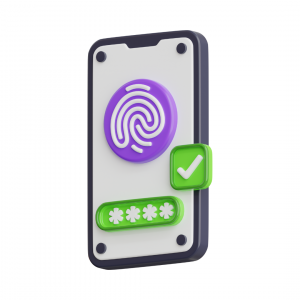
The magic of Biometric Security Systems lies in its simplicity and sophistication. Here’s a simplified breakdown of how it works:
Enrollment: Initially, the system captures and stores your biometric data, like a fingerprint or facial scan, as a reference template.
Capture: When you attempt to access a secure area or system, the biometric system captures your biometric data once again.
Comparison: The system then compares the new data with the stored template to find a match.
Verification or Identification: If a match is found, your identity is either verified (verification) or your identity is determined from a database (identification).
Access Granted or Denied: Based on the result, access is either granted or denied.
Biometric Security Systems in Various Industries are not just about fancy technology; they represent a robust, user-friendly, and reliable solution for modern-day security challenges. By understanding the types and workings of biometrics, you are better poised to appreciate the immense value they bring to various sectors.
Biometric Security Systems in Various Industries
Biometric Security Systems are not just confined to high-security zones; they are making waves in a multitude of industries. Let’s journey through some of them:
1. Healthcare
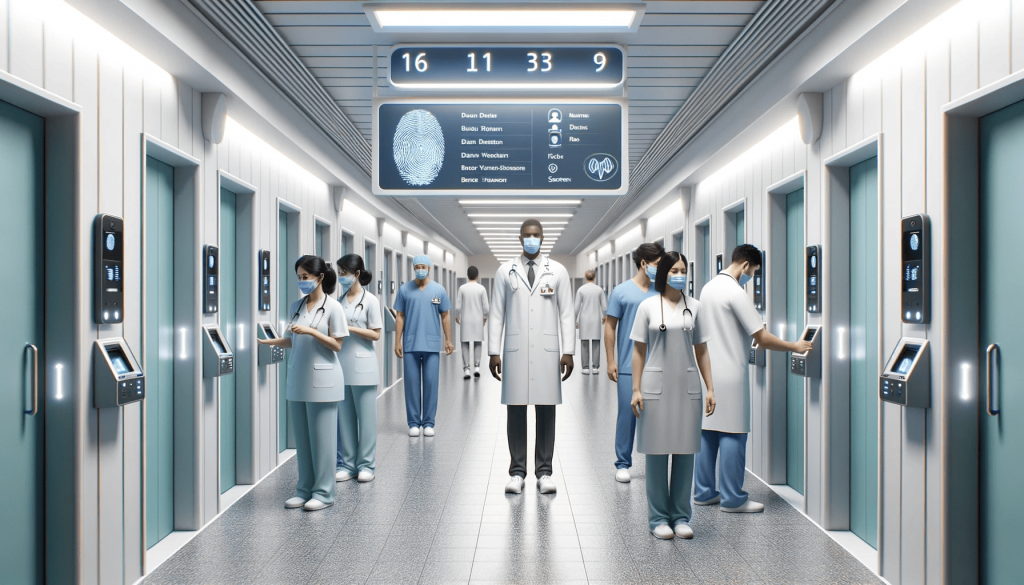
In a sector where patient identification is crucial, Biometric Security Systems ensure that medical records match the right individual, every time. They help in:
- Reducing medical errors: By ensuring that each patient’s medical records are accurately matched to them, biometric systems significantly reduce the chances of medical errors.
- Streamlining patient registration: With a simple scan, patients can be registered into the system, making the process swift and hassle-free.
- Enhancing patient privacy: By utilizing unique biological traits for identification, biometrics provide a high level of security, thereby preserving patient privacy.
Moreover, these systems facilitate smooth workflow management, making it easier for healthcare staff to focus on providing quality care rather than grappling with administrative hassles. The integration of Biometric Security Systems in healthcare is a giant stride towards fostering a safe, efficient, and patient-centric environment.
2. Banking and Finance
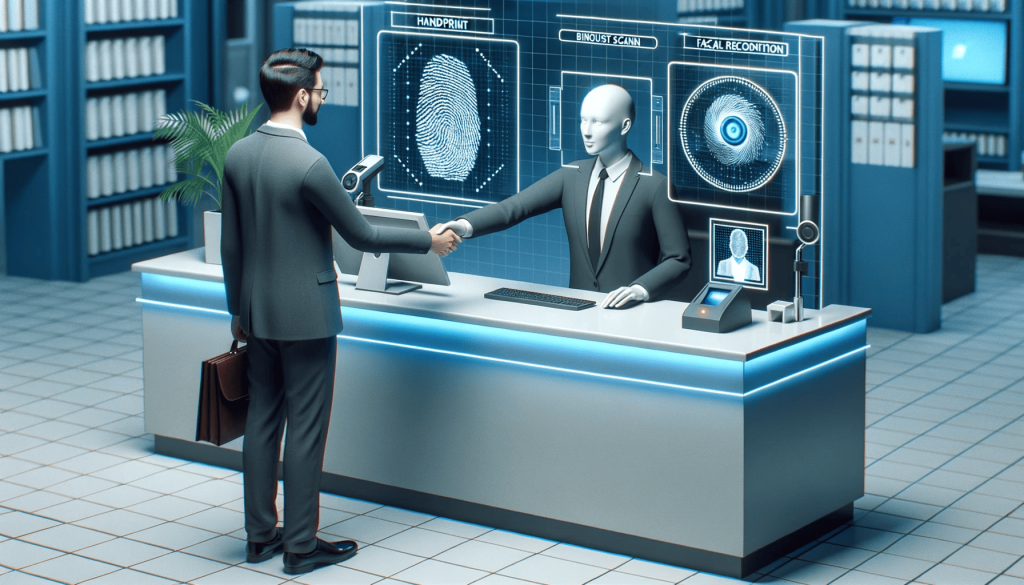
Imagine walking into a bank and being recognized instantly. That’s the power of biometrics. It’s reshaping the banking sector by:
- Ensuring secure transactions: Biometric Security Systems provide an additional layer of security, making financial transactions much more secure.
- Reducing identity fraud: By utilizing unique biological traits, biometrics significantly lowers the chances of identity theft and fraud.
- Enhancing customer experiences: Customers can enjoy a smoother, quicker service, whether it’s at a bank branch or an ATM, elevating the overall banking experience.
- Streamlining operational efficiency: By automating the identity verification process, banks can operate more efficiently, freeing up staff to focus on other important tasks.
- Improving regulatory compliance: Biometrics helps banks in adhering to stringent financial regulations by providing a reliable method of customer identification, thus ensuring compliance with local and international laws.
The integration of Biometric Security Systems in the banking and finance sector not only fortifies security but paves the way for a more streamlined, customer-centric approach to financial services.
3. Education
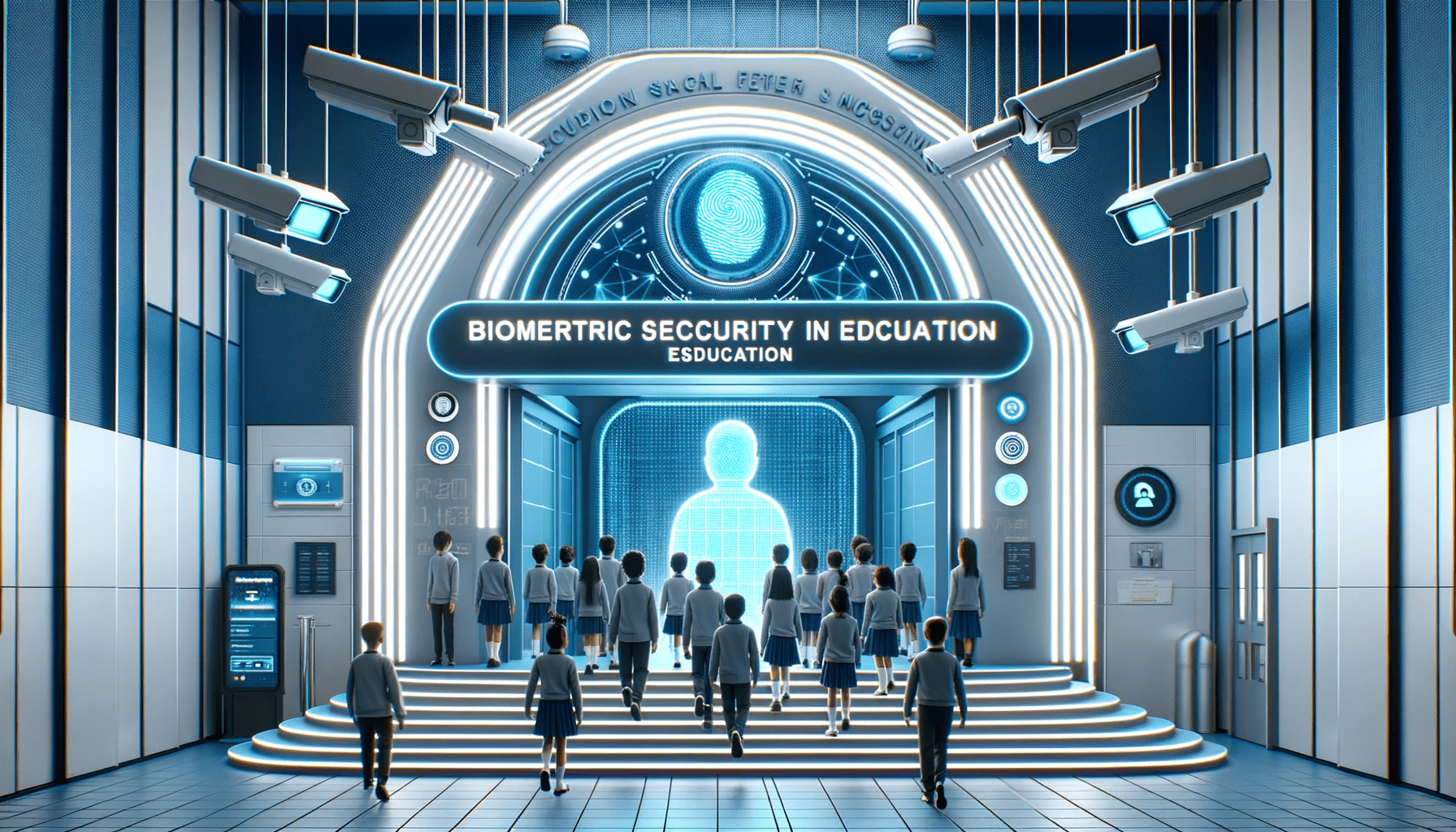
With a wave of modernity, educational institutions are adopting Biometric Security Systems for a myriad of applications, ensuring a safe and efficient learning environment. They are instrumental in:
- Accurate attendance tracking: Gone are the days of manual roll calls. Biometrics provide a quick and accurate method to record attendance, ensuring that time is better spent on teaching and learning.
- Enhanced campus security: By controlling access to buildings and sensitive areas, Biometric Security Systems ensure that only authorized individuals can enter, creating a safer environment for both students and staff.
- Streamlined administrative processes: With automated identification and data collection, administrative tasks become a breeze, allowing staff to focus on more strategic, high-value activities.
- Foster a sense of responsibility: When students know that their attendance is being monitored accurately, it instills a sense of responsibility and accountability, promoting a more focused and disciplined approach to education.
- Future-ready infrastructure: Embracing Biometric Security Systems is a step towards creating a modern, tech-savvy educational environment that is ready to adapt to the evolving needs of the 21st century.
4. Travel and Hospitality
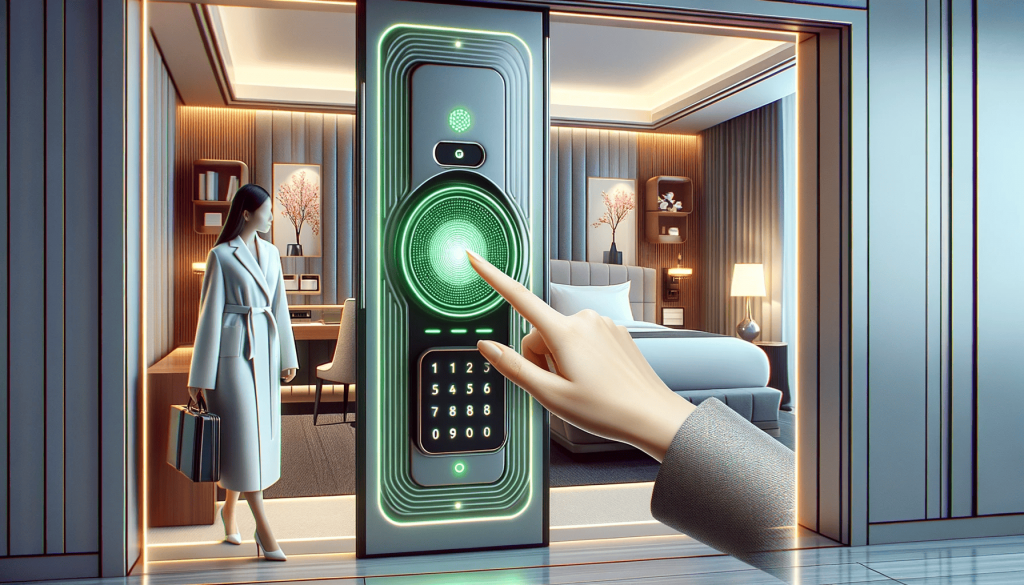
The travel and hospitality industry is soaring new heights with Biometric Security Systems. They are instrumental in:
- Speeding up check-in processes: Biometric identification expedites the check-in and check-out processes, ensuring a smooth transition for guests.
- Enhancing security measures: By verifying identities effortlessly, these systems bolster the overall security of the premises, providing peace of mind to both guests and staff.
- Personalizing guest experiences: When a guest is recognized instantly, it paves the way for personalized service, making their stay memorable.
- Facilitating seamless transactions: With a simple scan, transactions become swift and hassle-free, enriching the customer experience.
- Streamlining operational efficiencies: Biometric systems automate various aspects of operations, reducing manual errors and freeing up staff to focus on delivering exceptional service.
Through these multifaceted benefits, the travel and hospitality sector is becoming more efficient, secure, and customer-centric, showcasing the transformative potential of Biometric Security Systems in Various Industries.
5. Government and Law Enforcement
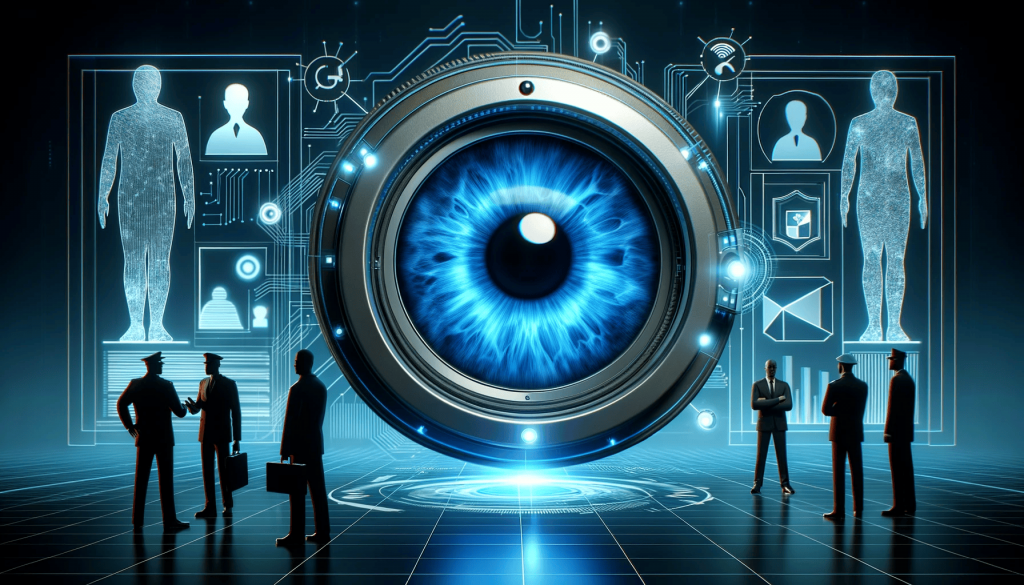
The realms of government and law enforcement are bolstered by the precision and reliability of Biometric Security Systems. They play a pivotal role in:
- Accurate identification of individuals: Biometric systems provide a foolproof way to ascertain identities, which is crucial in sensitive governmental and law enforcement scenarios.
- Streamlining security checks: By swiftly authenticating identities, these systems significantly expedite security checks, enabling a smoother flow of operations.
- Enhancing surveillance and monitoring: With biometric technology, surveillance and monitoring become more robust, aiding in criminal investigations and ensuring public safety.
The integration of Biometric Security Systems in Various Industries, particularly in government and law enforcement, underscores a movement towards a safer and more orderly societal framework. As biometric technology continues to evolve, its applicability in ensuring security and operational efficacy within these sectors becomes increasingly apparent.
Also Read: RFID for Asset Tracking and Inventory Management
Final Words
We’ve just skimmed the surface of how Biometric Security Systems in Various Industries are revolutionizing the way we perceive security and operational efficiency. The fusion of technology and unique human traits is not just exciting but holds the promise of a safer and more reliable world. As you ponder on the power of biometrics, the future indeed looks promising with endless possibilities.
For the best tech solutions for your business, reach out to Aeologic Technologies. Let’s grow together.

I’m Deepika Pandey, an SEO strategist and content writer with 6+ years of experience. I create SEO-friendly content that drives traffic and engages readers. I combine data insights with creativity to help businesses grow their online presence effectively.

